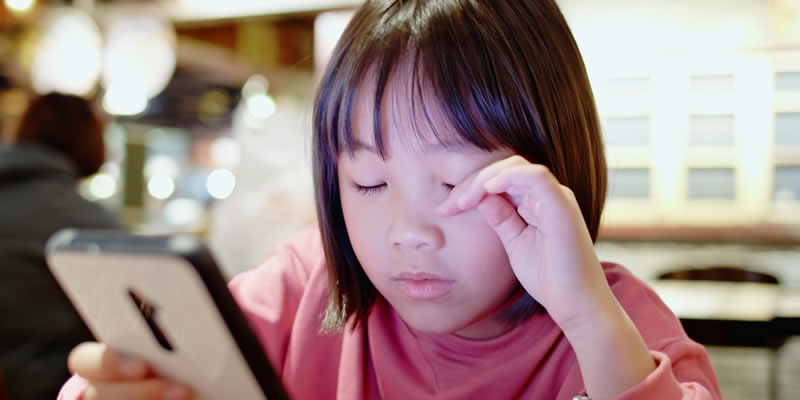Despite measures being put in place and vaccines promising a return to ‘normal’, more and more people are complaining of suffering with ‘pandemic burnout’.
As people start moving away from the suggested guidelines, the feeling of exhaustion is becoming increasingly common.
So, what is pandemic burnout and what can be done to combat it as we move away from the pandemic lifestyle?
What is COVID fatigue?
According to the World Health Organization (WHO), pandemic fatigue is the demotivation and exhaustion due to the demands of life during the coronavirus crisis. They forewarn that this can eventually cause a lengthier, more destructive pandemic.
Nevertheless, let it be known that pandemic fatigue is entirely normal.
The fear and anxiety felt at the beginning of the coronavirus epidemic keeps you going as your short-term survival skills take effect. Gradually, the feeling of fear decreases with time, and we become infuriated. This is when we start to feel exhausted and demotivated.
How to know if you have COVID fatigue
Everyone is unique, so not everyone feels or presents burnout in the same way. Yet, it commonly includes the following symptoms.
Emotional exhaustion and pessimistic feelings
These are the two most common symptoms of burnout. Research detected these symptoms amongst those who work in particularly challenging environments throughout the pandemic.
Demotivation and lower quality of work
Burnout occurs when you have used up all your personal resources. You begin to doubt yourself, and then, in time, you spend less attention on your work. Researchers found that people with pandemic burnout sometimes start to feel as though they are a failure at work.
Anxiety surrounding the future
Research suggests that this anxiety relating to the future of your life, those around you, and the world in general, originates from the unpredictability of the pandemic. Unpredictability leaves people feeling like they have lost control over their lives.
Frustration resulting to ignoring health guidelines
The longer the pandemic lasts, the more tired people are of following guidelines, such as wearing masks and sanitising their hands. Although this is a natural side effect, it can lead to prolonging the pandemic.
Strategies for dealing with COVID burnout
Keep your routines
To help cope during crises, experts suggest keeping a daily routine can aid in maintaining mental well-being. Nevertheless, keeping routines can be extremely challenging under pandemic circumstances, such as working from home or not working at all.
It is recommended to concentrate primarily on routines that are essential in day-to-day life, for example eating properly and getting sufficient sleep. These are the factors that often have the greatest effect on stress.
“Secondary routines”, those such as exercise and being social, are also vital for your mental well-being. Adapting your daily routine may be necessary to replace or fit these habits into your day.
Strengthen ties with your most important relationships
Seeking and developing new relationships can take a lot of effort and time. This will only have a negative impact if you are already feeling exhausted and overwhelmed. Therefore, it is recommended to spend your time on the relationships you already have in your life.
Research suggests that these relationships will help provide you with a sense of togetherness and support without wearing you down.
Nevertheless, all of your already existing relationships may not be healthy. If a relationship is turbulent or harmful, the pandemic will only add to this burden.
Although all situations are different, you are the one in control of your relationships. You should remove yourself from unhealthy and poisonous relationships when you are ready. If you need some support, there are resources available to help you.
The risk of addictive behaviours
Experts in mental health highlight that people become more stressed when there are in crises such as economic uncertainty, food insecurity, and isolation. For people who suffer with eating disorders or substance abuse, these crises intensify their symptoms.
A small study found that 38 per cent of people who are being treated for an eating disorder noticed more symptoms during the start of the pandemic.
The study concluded that people should:
- Plan calming activities that they enjoy
- Practice deep breathing
- Meditate
- Write down the positive aspects of their day in a diary
Building resilience
Being able to ‘bounce back’ from tough times is resilience. For example, professional athletes are resilient because they continuously recover from tiredness, injuries, and the tremendous demand they put on their body and mind.
Although it can be a personality trait, people can train themselves to become more resilient.
After studying COVID burnout, researchers suggest the following to bolster resilience:
Have confidence in yourself and be positive
Take time to remember the past challenges you have conquered. Self-belief is essential for resilience.
Focus on the here and now
Mindfulness habits have been shown to improve resilience
Physical exercise
Exercise can better both your physical resilience and mental resilience
Avoiding being overwhelmed by COVID-19 news
At the start of the coronavirus pandemic, many people became fixated with hourly or daily news.
When the pandemic burnout began to set in, people started to keep up with news and media less and less. It is presumed that it was causing feelings of anxiety, and people struggled to cope with it.
Feeling overwhelmed by news surrounding the pandemic is not unusual. To deal with it, experts suggest:
Limiting the time which you listen to, watch, or read the news
Checking the news just once a day, at the same time each day, has been helpful for some people.
Pay attention to where the news is coming from
You should only take notice of news from reliable sources. When news associated to the pandemic contains overly emotional commentary, anxious feeling increase, which can then cause exhaustion.
Getting help
Remember, many people are dealing with COVID fatigue, and you are not on your own.
When
You should reach out for support if you:
- Suspect that continuous feelings of anxiety are affecting you in terms of well-being, relationships, and your day-to-day functioning
- Are suffering from depression symptoms
- Feel unmotivated to look after your health and the health of others around you
Where
A range of help and support can be found virtually. Here are some online resources which are a good place are to start if you feel that you need support with coping with challenges of the coronavirus.
Support and resources
- Centre for Mental Health – Coronavirus: resources and information
- Mind.org.uk – Coronavirus and your wellbeing
- NHS Every Mind Matters – Coronavirus (COVID-19) and mental wellbeing
- Carson’s Village – A network to support families who have lost someone
Exhaustion from the pandemic can be felt all across the world. People are becoming unmotivated to follow health guidelines and are experiencing prolonged feelings of anxiety and depression due to the ambiguity surrounding COVID-19.
You may be able to help cope with burnout by boosting your resilience, creating a healthy daily routine, depending on longstanding relationships, and reaching out if you need some extra help.
It is important to remember that this pandemic is only temporary. The healthy habits used to look after yourself can be carried forward to help you deal with any challenges that may appear as we move back towards normality.







